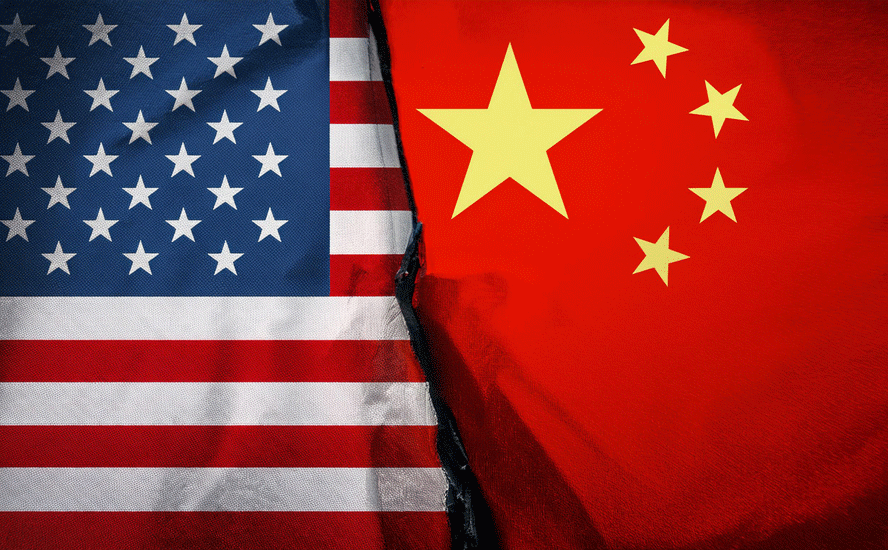Should the US ban TikTok?
By Ian Bremmer
The popular video-sharing app’s Chinese parent company, ByteDance, has been locked in a years-long battle with the US government that has become a flashpoint in the increasingly strained relationship between the United States and China.
Intelligence officials and lawmakers from both parties say TikTok poses a threat to national security, arguing the Chinese government can use it to surveil and manipulate Americans at will — a charge that TikTok and Beijing deny. TikTok has been on the chopping block since former President Donald Trump tried and failed to ban it in 2020. Last December, the government prohibited its use on federal devices following months of congressional hearings, and many states and colleges have followed suit. Yet the app can still be used on personal devices, and its reach continues to grow unabated, with nearly half of all Americans (!) now active users of the app.
That could change soon. Despite TikTok’s claim that it’s harmless and “too big to ban,” calls to restrict the app have reached a fever pitch just as getting tough on China has become politically fashionable. President Joe Biden is now pushing for a nationwide ban unless ByteDance divests from TikTok, and Congress is drafting bipartisan legislation that would make that happen.
But would that be the right move? Let’s look at the strongest case for and against a full ban.
The case for a ban
TikTok answers to the Chinese Communist Party. China is an authoritarian state capitalist regime with no rule of law, individual liberties, or free market economy, locked in an increasingly adversarial strategic competition with the United States. Chinese private-sector companies may be nominally autonomous from the government, but when it comes to national security, they are mere arms of the CCP. China’s 2017 national intelligence law requires all Chinese companies to share any customer information with national security implications — potentially including data on US citizens — with the government. Moreover, Beijing has taken an equity stake and a special board seat at ByteDance, furnishing China with a way to exert direct influence over the company’s day-to-day operations.
In practice, this means Beijing could weaponize the inordinate amount of user data collected by TikTok (including location and browsing data) to spy on American citizens. While TikTok has long maintained that it stores US user data within the US, multiple episodes have revealed that ByteDance employees have had access to non-public US user data and may have even used the app to surveil US reporters. The FBI and other spy agencies have warned that Beijing could easily force ByteDance to hand over its data on American users, including US government employees, for blackmail or espionage purposes.
Beijing could also commandeer TikTok’s algorithm to push disinformation, “shadow ban” anti-China and pro-US content, sow division, and influence American public opinion. We know ByteDance can censor content; there’s evidence that TikTok already suppresses references to things like China’s treatment of Uyghurs and the Tiananmen Square massacre. More perniciously, it could subtly influence user feeds without anyone realizing it, boosting content that may not be explicit propaganda but that nonetheless pushes China’s positions or advances its interests. In the extreme, China could use the app to sway US elections, much like Russia did in 2016 on Facebook and Twitter but to much greater effect.
Despite assurances from TikTok that it is neither sharing US citizen data with Beijing nor surreptitiously manipulating content feeds, the fact is both could be easily done. While the remedies proposed by ByteDance — such as having a US company handle all US data and committing to adhere to strict privacy and security practices in the US — may solve the data protection issue, nothing short of an outright ban can mitigate the malign influence challenge.
No matter what it promises, the company is ultimately beholden to the Chinese government. And it would only take one breach — whether it’s a handover of American users’ personal data or an influence campaign at a time of crisis — to cause significant harm to US national security.
China already bans all US social media platforms under the guise of national security, so why shouldn’t the US respond in kind? TikTok itself is banned in China, with Beijing only allowing ByteDance to operate a heavily censored version of the app for its own citizens. A US ban of TikTok would only be a fair and reciprocal response — one that would protect not only US national security but also American social media giants (which aren’t allowed to do business in China) from their most formidable competitor in the US.
The case against a ban
A ban is un-American. TikTok is the fastest-growing app in history and one of the most popular products in existence. As far as we know, ByteDance has never turned over user information to the Chinese government or allowed it to use its algorithm to systematically manipulate US users. Banning such a successful product without proof of real harm to US national security would cut against America’s free-market ethos, bring the US down to China’s level in the eyes of the world, and undermine any future US criticism of Chinese statism.
It may be illegal. A federal ban of a major communication platform would interfere with Americans’ freedom of expression and association in violation of the First Amendment. As such, it may well be struck down by the courts as unconstitutional.
It would be harmful and unpopular with young Americans. TikTok is critical infrastructure for the “creator economy,” a growing sector that the United States is well-positioned to dominate. Banning the app would cripple this budding engine of US economic growth and harm the large number of influencers and small businesses that rely on the platform for exposure and revenue. A ban could also provoke a political backlash from TikTok’s estimated 150 million American users, including the two-thirds of teenage and young Americans who use the app and oppose a ban by a margin of 2-1. Politicians on both sides of the aisle may want to avoid upsetting this rapidly growing cohort of current and future voters.
It would have only symbolic effects on US data privacy and national security. Even if TikTok was banned, China would have other means to collect information on US citizens — not least by legally buying it from data brokers. And TikTok is far from the only social media platform with an opaque algorithm and little to no accountability for what kinds of content it delivers to different users and why. The threats posed by TikTok are not unique to TikTok, nor is the Chinese government the only actor with the ability to access vast amounts of US data and wield it for nefarious purposes. Comprehensive privacy laws that limit the collection and misuse of online data by all companies would protect Americans more effectively than selectively banning platforms.
It would make the US-China relationship more dangerous. Banning a consumer app like TikTok (as opposed to strategic infrastructure like Huawei) would confirm Beijing’s worst fears about Washington’s containment ambitions, invite China to retaliate against US companies operating in China, and accelerate US-China decoupling, ultimately eroding the interdependence that deters outright conflict between the world’s two superpowers.
The verdict
In my ideal world, this would be an area for US-China competition rather than confrontation. But competition — at least of the free and fair kind — would require that Beijing allow US social media platforms to operate in China. That’s the American way: Level the playing field, eliminate barriers to entry, and let the best product win.
Alas, the CCP isn’t taking down its so-called Great Firewall anytime soon, so I lean in favor of banning TikTok.
That said, we should be under no illusion that a TikTok ban is anything more than a band-aid. The bigger policy failure Washington needs (but has thus far failed) to address is the lack of comprehensive privacy legislation that allows bad actors — both foreign and domestic (yes, I’m looking at you, Twitter and Facebook) — to exploit Americans’ personal data for monetary, political, or geopolitical gain.
Banning TikTok may be necessary, simple, and expedient, but it’s assuredly not sufficient, costless, or risk-free.
Ian Bremmer
Be sure to subscribe to GZERO Daily to get the world’s best global politics newsletter every day on top of my weekly email. Did I mention it’s free? Also, be sure to sign up for GZERO North, a new weekly newsletter covering the crucial US-Canada relationship.
Legal Notice / Disclaimer
Ahead of the Herd newsletter, aheadoftheherd.com, hereafter known as AOTH.Please read the entire Disclaimer carefully before you use this website or read the newsletter. If you do not agree to all the AOTH/Richard Mills Disclaimer, do not access/read this website/newsletter/article, or any of its pages. By reading/using this AOTH/Richard Mills website/newsletter/article, and whether you actually read this Disclaimer, you are deemed to have accepted it.




























